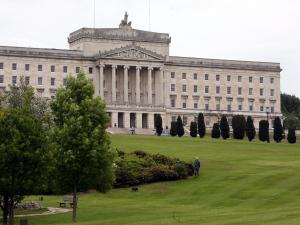
By Q Radio News
As the Northern Ireland Assembly meets for the first time today following its summer recess, a think tank has warned Stormont faces many tough tests and must pass them all while also tackling Covid
The Executive needs to succeed in several key areas in the coming year, according to a new report from think tank Pivotal.
In particular their report says the Executive and the Assembly must address the following concerns as a matter of urgency:
- Improving how government works
- Economic recovery from Covid-19
- Priorities in health and social care
- Priorities in education
Speaking about the report, Ann Watt, Director of Pivotal, said: “In January there was a sense of optimism about government in Northern Ireland. Long-term issues were at the top of the agenda in the New Decade, New Approach deal, like skills, infrastructure, and health and social care reform.
“Covid-19 changed all that and, overall, the Executive deserves credit for how it has handled the pandemic so far. However, Northern Ireland’s pre-existing problems have not gone away and, while they have got tougher to tackle, there is an urgent need to take them on.
“The local economy is particularly weak to the problems thrown up by Covid-19. Recovery is set to take years, longer than the rest of the UK. However, there is opportunity for change. Broad skills programmes are essential to ready Northern Ireland for the economy of the future. Infrastructure investment should be a top priority. Regional inequalities should be addressed.
Ann Watt
“Restarting children’s education is an immediate priority. The lockdown learning gap cannot be allowed to grow further, and children’s emotional health and wellbeing needs support following months without school. However, the challenge goes beyond simply opening schools – individual children’s access to and engagement with education must be maintained on an ongoing basis, whatever further obstacles emerge due to Covid-19.
“The Executive also must ensure that the varying experiences of children during lockdown do not undermine the fairness of this year’s post-primary transfer process. So far, a lack of leadership has been shown on this issue despite the obviously challenging context.
“It is difficult to see how the 2020 transfer process can be seen to be fair given the hugely variable experiences of individual children during the pandemic. While there is no clear fix for the transfer test process, that does not mean the default position should be to revert to the status quo following an insignificant delay.
“Transformation of Health and Social Care is as large a priority now as it has ever been. However, as well as beginning to reconfigure the health system the Executive must also focus on reducing waiting lists and protecting public health from Covid-19. Transformation has become more difficult, but no less essential.
“Health waiting lists are off the scale. During the first quarter of this year almost nine out of ten patients waited longer than the nine-week target for referrals. Over 136,000 people have been waiting more than a year for a first outpatient appointment. The Executive’s target is that no-one should wait more than one year.
“Properly functioning government underpins everything else. For the most part, the Executive has approached Covid-19 with a united front – albeit with some significant exceptions. That unity has to be the model in future, together with the recommendations from the RHI report.
“Those high-profile exceptions cannot be the norm. Nor can a return to the disunity and lack of collective responsibility highlighted by RHI.
“Altogether the Executive faces an immense set of challenges. It will not be easy, but it is vital for everyone in Northern Ireland that they are handled well.”


 O’Neill praises Pope’s commitment to peace as she confirms funeral attendance
O’Neill praises Pope’s commitment to peace as she confirms funeral attendance
 Woman suffers ‘traumatic ordeal’ in roadside robbery in Newry
Woman suffers ‘traumatic ordeal’ in roadside robbery in Newry
 Shock over record number of attacks on ambulance crew
Shock over record number of attacks on ambulance crew
 Police investigate petrol bomb attack at Co Antrim flat
Police investigate petrol bomb attack at Co Antrim flat
 Benn to discuss legacy issues with Harris at Hillsborough Castle
Benn to discuss legacy issues with Harris at Hillsborough Castle